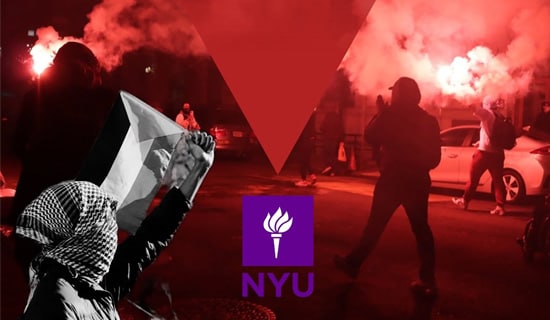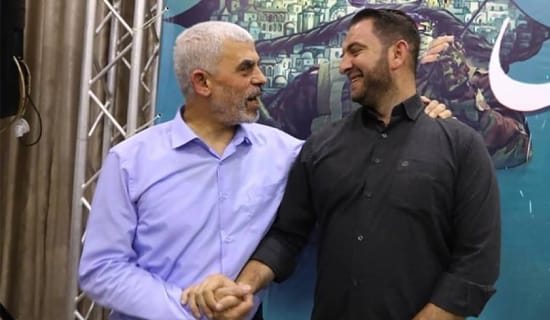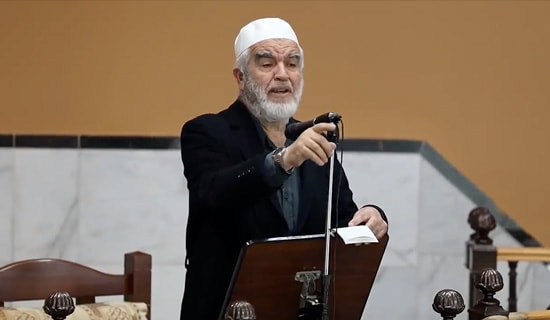Reactions in Iran to the Russia-Ukraine war that broke out on February 24, 2022 have two main characteristics. First, they accuse the U.S. and the West of causing the war by supporting Ukraine's bid to join NATO and by encouraging it to provoke Russia. Iran considers the U.S. as the instigator of wars around the world, including the present war, which, according to this rationale, broke out because the U.S. caused Russia to attack Ukraine. The second characteristic pertains to the lesson Iran must draw from the events in Ukraine. The war, said many speakers, proves that Iran must not give up its military strength and independent abilities, hinting at nuclear weapons, as Ukraine did in 1994 when it surrendered its nuclear arsenal in return for assurances that its territorial integrity will be respected.
The speakers also addressed the impact of the war on the nuclear talks in Vienna and the position Iran should take vis-à-vis the U.S. on one hand and Russia on the other. They argued that, although the U.S. is responsible the war in Ukraine and for the impasse in the nuclear talks, Iranian support for Russia's attack on Ukraine may undermine Iran's position in the talks with the U.S. and its demand to lift as many as possible of the sanctions on Iran. On the other hand, if Iran supports Ukraine, Russia may thwart the Vienna talks.
It should be mentioned that the ideological circles in the Iranian regime have mostly taken a pro-Russian position and expressed understanding for Russia's motives in attacking Ukraine, whereas reformist circles have expressed support for Ukraine and its right to defend itself against the Russian attack.[1]
The following are some statements by prominent regime spokespersons:
Supreme Leader Khamenei: "Ukraine Is A Victim Of The American Policy Of Instigating Crises, For America Is The One Who Brought Ukraine To This Juncture By Meddling In Its Internal Affairs"
In a March 1, 2022 speech, Supreme Leader Ali Khamenei addressed the Ukraine war and the lessons to be drawn from it, while blaming the U.S. and Europe for the current situation there. Ukraine, he said, is a victim of America, which, as part of its policy of instigating crises, dragged Ukraine into a war with Russia by interfering in its internal affairs.
Khamenei said: "[The Ukraine war] is a blatant example of the American policy of instigating crises. Iran's firm position – in contrast to the West's double standard – has always been to oppose war and devastation in every part of the world. In order to resolve the crisis in Ukraine and assess it [we] must identify its real roots…
"Greed, money, discrimination, the use of science and technology to kill people, the plundering of weak countries, extreme moral vulgarity, and promiscuity are the main characteristics and foundations of Western civilization, which is in fact a modern form of the jahiliya [the pre-Islamic era of ignorance]...
"The American regime is a clear and blatant example of [this] modern ignorance in our world, and 'instigating crises' is one of its traits. This is a mafia regime, in which political and economic mafia networks, as well as the weapons industry, profit from the spread of global crises. These mafias, which are responsible even for the rise and fall of American presidents, need to create crises and crisis hotspots in various parts of the world in order to survive…
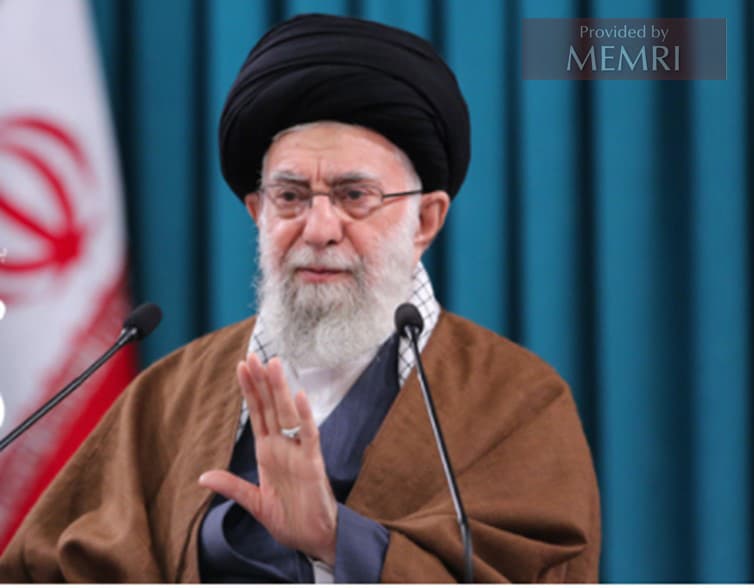
Ali Khamenei (Source: Khamenei.ir, March 1, 2022)
"Ukraine is now a victim of [this] American policy of creating crises, for America is the one who brought Ukraine to this juncture by meddling in its internal affairs: by organizing rallies, instigating a vlevet color revolution, [sending] its senators to [Ukrainian] opposition rallies and replacing the [Ukrainian] government.
"We oppose war, killing and the destruction of infrastructures in any country anywhere in the world. This is the permanent position of the Islamic Republic of Iran. It differs from the double standard of the Westerners, who call the bombing of a wedding procession in Afghanistan, or the killing of the Iraqi people, 'war on terror.'
"What is America doing in eastern Syria? Why is it stealing Syria's oil? Why is it plundering the national wealth of the Afghan people? Why does it defend the daily crimes of the Zionists in the Middle East and create [all] these crises in the name of defending human rights?...
"We are in favor of ending the war in Ukraine, [but] in order to resolve the crisis its roots must be identified. The root of the crisis in Ukraine is the policy of America and the West, and it is necessary to understand [this policy], assess it and act accordingly.
"The first lesson that all governments must draw is that the support extended by the Western superpowers to the countries and governments they have chosen [to favor] is illusory, not genuine. The current [government of] Ukraine and yesterday's [government of] Afghanistan are living examples of governments who relied on America and Europe. The President of Ukraine and the former president of Afghanistan have both said that they counted on America, but it left them alone [in the fray]…"[2]
On The Implications Of Ukraine Crisis For Iran And The Nuclear Talks With The Superpowers
Majlis Members: The War Proves Iran Must Preserve Its Nuclear Abilities
Addressing the lessons to be drawn from the Russian invasion of Ukraine, several members of the Iranian Majlis stated that Iran must be a country with muclear and military might, and must not relinquish any of its military abilities – unlike Ukraine, which gave up its nuclear weapons in return for American, British and Russian security assurances. The following are several of these statements:
Majlis Member Mohammad Kaab Amir: "We Must Insist On The Nuclear Rights Of The Iranian People… So That Iran Will Be Strong, With Nuclear And Military Might"
Majlis Member Mohammad Kaab Amir, representative of the city of Shush in Khuzestan Province, said: "Ukraine is an example from which the supporters of the West and the East must learn. We must insist on the nuclear rights of the Iranian people, while preserving [our] national authority and honor, so Iran will be strong, with nuclear and military might."[3]
Majlis Member Mohammad Safai: When Ukraine Surrendered Its Nuclear Weapons In 1994, America And Britain Gave It Security Assurances; Now They Have Abandoned It
Majlis Member Muhammad Safai, representative of the city of Gonabad in Khorasan Province, said: "Ukraine… used to be the third-largest nuclear superpower in the world. In 1994 it surrendered all of its nuclear weapons as part of the signing of the Budapest Memorandum, and in return America and Britain gave it security assurances. Now they have left it in crisis."[4]
Majlis National Security and Foreign Policy Committee Member Hossein Nooshabadi: Iran Must Preserve Its Nuclear Abilities And The Great Achievement Of Developing Self-Manufactured Islamic Technology
SUPPORT OUR WORK

In a February 28, 2022 interview with ISNA, Hossein Nooshabadi, head of the International Diplomacy And National Interests faction in the Majlis and a member of the Majlis National Security and Foreign Policy Committee, said that "the other sides [in the Vienna talks, i.e., the West and the U.S.], must accept that Iran has to maintain its nuclear might and the great attainment of acquiring Iran-made Islamic technology." [5]
Civil Defense Chief Jalali: "We Should Note That NATO's Eastward Expansion Threatens Us As Well"
Speaking at a March 6 conference, Gholam Reza Jalali, head of Iran's Civil Defense Organization, explained that that Russia attacked Ukraine because the U.S. was physically encroaching on its borders, and claimed that NATO's expansion was also a threat to Iran in the long term. The U.S., he added, is also encouraging Israel to physically encroach on Iran's borders by means of its presence in countries close to Iran. He too warned that giving up powerful weapons, as Ukraine did in 1994 and as Libya did in 2003, causes countries to lose their strength and their ability to withstand attacks. He stated further that the war in Europe actually strengthens Iran's position in the nuclear talks because the U.S. will not be able to force the UN Security Council to take an anti-Iranian stance.
Jalali wrote: "Ukraine's bid to join NATO crossed a red line for Russia in terms of its national security, [because] it would make America Russia's close neighbor, in a way, and that would be very dangerous for Russia…
"We should note that NATO's eastward expansion is also a threat to [Iran], albeit a distant one, and that is why we generally oppose NATO's penetration into the Middle East and its presence there. It should also be noted that one of America's long-term strategies involves the presence of the Zionist regime in Azerbaijan, Armenia and Georgia, which brings this regime closer to Iran, and this [too] constitutes a threat to us…
"One of [Ukraine's] mistakes was that, despite being one of the world's nuclear powers, it gave up all its nuclear facilities and abilities in return for European security [assurances] and European support. This agreement was a dangerous move, and may serve as a lesson to us, that we must not place our security in the hands of others." Jalili mentioned Libyan leader Mu'ammar Qadhafi, who in 2003 gave up his secret nuclear program as part of an agreement with Britain, but the British later "attacked him." Jalili commented that, "especially today, when we are on the cusp of an agreement with America and Europe, we must learn from this historical example…" He also claimed that "in the present situation, American will not be able to form a U.N. consensus against Iran regarding the JCPOA and ask [the Security Council] to take a resolution against us. For us this is an opportunity that will increase our leverage in the talks about the JCPOA."[6]
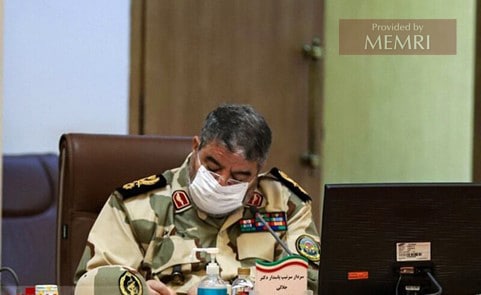
Gholam Jalali (Source: ILNA, Iran, March 6, 2022)
Kayhan Daily: The Ukraine Crisis Makes It Clear Why Khamenei Stressed The Need To Gain Strength On Every Level And To Reject Any Concessions Regarding Iran's Independent Defensive Abilities
The regime mouthpiece Kayhan, which espouses a hardline ideoloigical stance, addressed the war in Ukraine in several articles, taking a flagrantly pro-Russian and anti-American line. In a February 26 article, the daily mocked Ukrainian President Volodymyr Zelensky, "who considered himself a star actor but who, in the political game, is no more than a delusional amature." Like the aforementioned speakers, the daily explained that Ukraine had harmed itself by surrendering its nuclear weapons and its might in return for empty Western security assurances. As a result, the U.S. and NATO "toyed with it and [then] sent it to the slaughterhouse and left it alone in the fray." Kayhan too concluded that Iran must preserve its nuclear abilities as a means of detering attacks by other countries. The following are the main points of the article:
"Ukraine used to be the country with the world's third-lagest nuclear arsenal, and had significant tools and infrustructures for development and manufacture in this field… [Then,] in 1994, it joined the Non-Proliferation Treaty and destroyed its [nuclear] warheads, thus divesting itself of its [nuclear] weapons…
"America once promised Russia that NATO would not advance even one inch to the east, [but] now Russia saw the danger approach it… America and its European allies meant to make Ukraine the 15th country in this game, after 14 East European countries have already joined NATO…
"America and NATO toyed with Ukraine and sent it to the slaughterhouse, leaving it alone on the [fateful] day. [Ukrainian President] Zelensky perhaps thought this was one of those entertaining television shows and that he is the hero of the story, being applauded by the audience. But he soon realized that, while he may be a star actor, in the political game he is not more than a dellusional amature… Zelensky's name can certainly be recorded alongside Ashraf Ghani's [the former president of Afghanistan, who fled after the Taliban takeover of the country] on the list of leaders who trusted the West and its promises and, as a result, received a slap in the face…
"A close look at the dimensions of the Ukraine crisis and the world's response to it indicates very clearly why the leader of the [Iranian] Revolution [Khamenei] stressed the issue of gaining strength on every level and firmly opposed any concession regarding factors that guarantee the country's [ability to defend its] security on its own, without depending on others. In this world, we act to promote peace and quiet but we must always be ready for war.
"Another lesson our country and people must draw from this affair involves the crucial issue of unity regardless of ethnicity, race, language, religion and socio-political differences… Several countries used Ukraine like a toy [to promote] their interests, and left it alone on the [fateful] day."[7]
Kayhan: Ukraine War Proves That Might Is The Way To Avoid Threats; Disarming And Handing Over One's Sources Of Strength Is The Deadliest Mistake
In a February 28 article, Kayhan again blamed the U.S. for the crisis: "If we look closely, the reason for the war is America, which in the recent years tried to establish a military and espionage base in this country on Russia's border… The war in Ukraine did not begin last weekend but on the day of the American revolution [in Ukraine]. Several years later they placed a comedian [i.e., Zelensky] on the throne. America turned the comedian Volodymyr Zelensky into a political show… Making him a comedian-president is a black farce whose jokes insult mankind's intelligence. But America and the cultured NATO implemented this joke by manipulating Ukrainain public opinion…
"An important lesson of the Ukrainian war is that, in order to dispel threats, one must be strong. Disarming and handing over one's sources of strength is the deadliest mistake, which was justified by several officials in our country [members of Rohani's pragmatic government] who are influeced by the West…"[8]
Political Analyst Reza Nasri: "Iran Is Caught Between The Hammer and the Anvil"
In a February 27, 2022 interview with ISNA, political analyst Reza Nasri explained how he believes Iran should deal with the Russia-Ukraine crisis in order to avoid paying a price in the Vienna talks. He wrote: "In practice, Iran is caught between the hammer and the anvil. It must not annoy its reckless neighbor [Russia], but neither should it incur costs in the Vienna [negotiations] by unconditionally supporting [Ukraine]. In principle, Iran should take a position that takes into account the conflict between Russia and Ukraine but that does not harm its own strategic, polticial and ecomic interests. In other words, Iran must take a position based on international law and on the basic principles of the UN, rather than a purely political position. [Specifically,] it must say that it is displeased with [Russia's] violent reaction to NATO's provocations and suggest practical solutions…
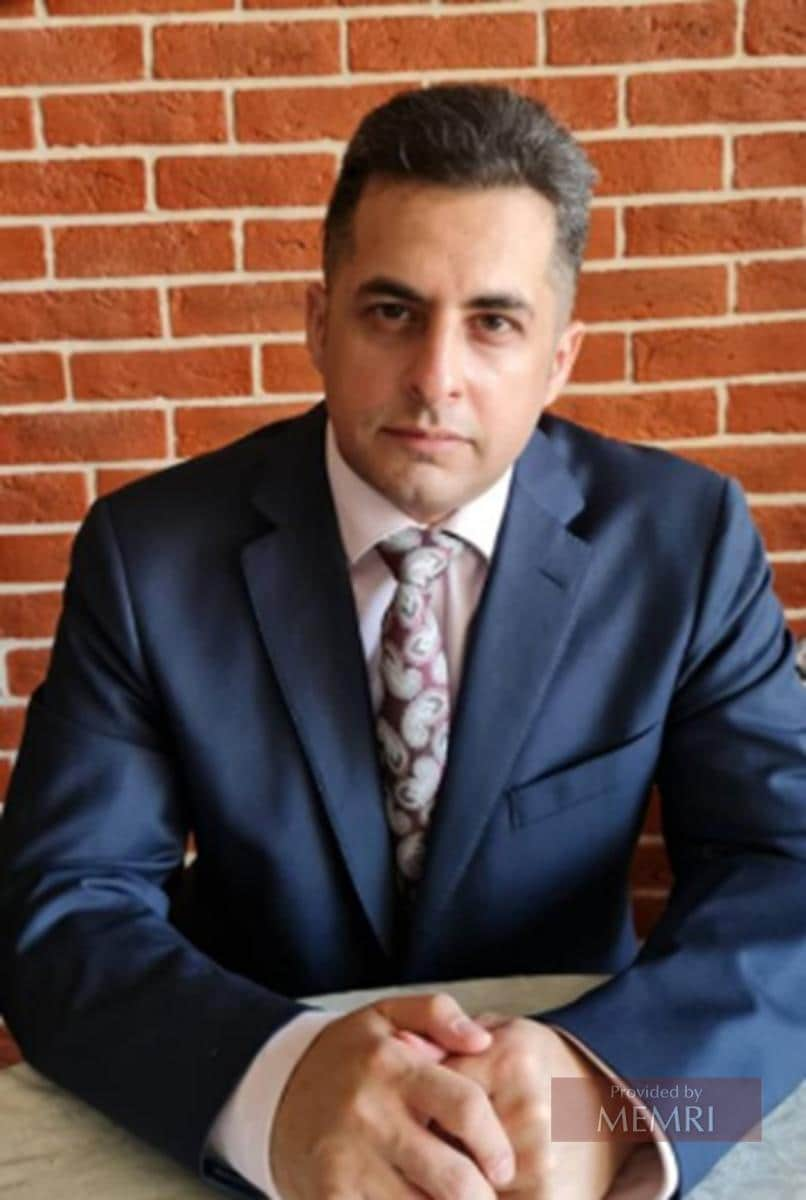
Reza Nasri (Source: ISNA, Iran, February 27, 2022)
"Note that, in the recent years, Iran's main claim against America in the context of the JCPOA was that America's conduct was ilegal. In these circumstances, Iran should not support Russia's illegal conduct unconditionally and without reservation."[9]
Iranian Academic Kiomars Yazdanpanah: "Any Biased Response Against Russia Or Pointed Discourse Against The West Can Sabotage All The Efforts To Revive The Nuclear Agreement"
Kiomars Yazdanpanah, a member of Iran's Geographical Society and a lecturer on geopolitics at the University of Tehran, who is affiliated with the reformist circles in Iran, likewise addressed the impact of the Ukraine war on the nucear talks in Vienna. Acknowledging that the talks are stuck, he hinted that accomodating the U.S. and the West will benefit Iran and warned that Iran must not support Russia in its war on Ukraine. He said: "The [decision of] NATO and the West to refrain from intervening directly in the war between Russia and Ukraine is a reasonable one at the moment, first of all [because] it benefits the West, and also because it prevents nuclear war, whose outcomes, if it actually breaks out, are uncertain. At the same time, the war with Ukraine may be the greatest blow to Russia's honor. The Russian invasion of Ukraine is a form of fraticide, a Russian war against Russia. That is the stupidity of Moscow…
"Quite likely, Russia's foolishness will [provoke] an even harsher global response and economic and security sanctions [than the ones we have seen so far] … I have no doubt that this war will cost [Russia] dearly, for instance in terms of Kremlin leaders being designated war criminals…
"Iran should express a neutral objection to the idea of war and violence, so as to avoid paying a future price, given this political reality and the sensitive and fragile state of the international arena. At this critical juncture, ahead of a crucial stage of the nuclear agreement, any biased response against Russia or pointed discourse against the West can sabotage all the efforts to revive the nuclear agreement…
"So far, the war in Ukraine seems to be very detrimental to the Vienna talks. The West's quarrel with Russia over Ukraine has practically brought these talks to a halt… Iran and the talks… are stuck and the events have made the future of the talks uncertain. [However, perhaps] the repurcussions of the Ukraine war will not harm Iran. [As a matter of fact,] the West may minimize the tactic of pressuring Iran and try to bring it closer and distance it from Russia by accepting the agreement. By the way, if that happens, both sides will benefit.
"There is no need to defend Russia's improper actions and blame the West for the crisis in Ukraine. It is better to first of all consider the situation of our country and our national interests… Iran must handle the situation correctly and leverage it, otherwise the future will be more uncertain than the past and present."[10]
Political Analyst Emad Abshenas: " The main culprit in these events is first of all America, and then none other than Ukrainian President Zelensky, who is a puppet and agent of America in Ukraine"
Political analyst Emad Abshenas told ISNA that the war in Ukraine is "not a comprehensive war but [only] a special operation, as the Russians themselves have said. Russia's goal is to keep Ukraine from joining NATO, because Russia's security is in danger.
"The main culprit in these events is first of all America, and then none other than Ukrainian President Zelensky, who is a puppet and agent of America in Ukraine. For two or three years, he has been constantly threatening Russia, and we see where this eventually led. I believe that the Americans want the Ukrainian people to be miserable and also want to embroil Russia in this war.
Russia, on the other hand, is [merely] asking Ukraine for security assurances. Some wise Ukrainian [representatives] can go to Minsk in Belarus and reach agreements with Russia by promising that Ukrainian soil will not be used to attack [Russia] and that they will not allow America and NATO to approach Russia's borders. The tension between Russia and Ukraine can be resolved diplomatically if America does not create problems."[11]
Cartoon Published By Tasnim News Agency: Zelensky And The "Western Promises"
A cartoon published February 27 by Iran's Tasnim news agency, which is affiliated with the Islamic Revolutionary Guards Corps, shows Zelensky clinging to "Western promises" while the ship carrying the Western leaders sails away without helping him. The text below the cartoon reads: "The Ukrainian President is frustrated with the Western military aid and has stopped following all the Western presidents and statesmen on Twitter."[12]
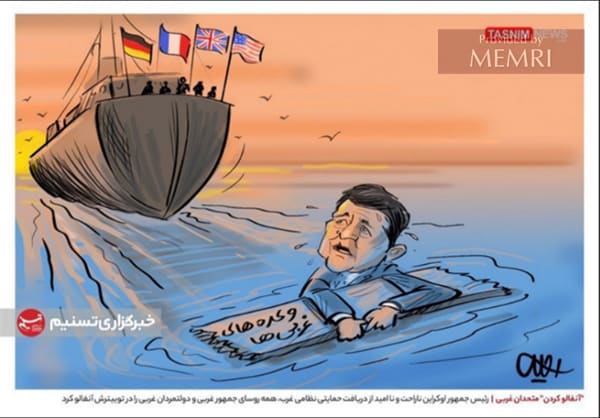
[1] A March 6, 2022 article in the regime mouthpiece Kayhan attacked the reformists for denouncing Russia's attack on Ukraine. It rebuked them for expressing reservations about remarks made by Iranian President Ebrahim Raisi in a phone conversation with Russian President Vladimir Putin, in which he expressed understanding for Russia's concerns regarding Ukraine. Kayhan said that the reformists' stance constituted a green light for other countries to attack Iran. The paper also wondered why the reformists are troubled by Russia's attack on Ukraine but keep silent about "America's crimes in Iraq, Afghanistan, Syria, Libya and Yemen," and why they do not answer Khamenei's question, "What is America doing in Syria?"
[2] Khamenei.ir, March 1, 2022.
[3] ISNA (Iran), February 26, 2022.
[4] ISNA (Iran), February 26, 2022.
[5] ISNA (Iran), February 28, 2022.
[6] ILNA (Iran), March 6, 2022.
[7] Kayhan (Iran), February 26, 2022.
[8] Kayhan (Iran), February 28, 2022.
[9] ISNA (Iran), February 27, 2022.
[10] ISNA (Iran), February 27, 2022.
[11] ISNA (Iran), March 1, 2022.
[12] Tasnim (Iran), February 27, 2022.


